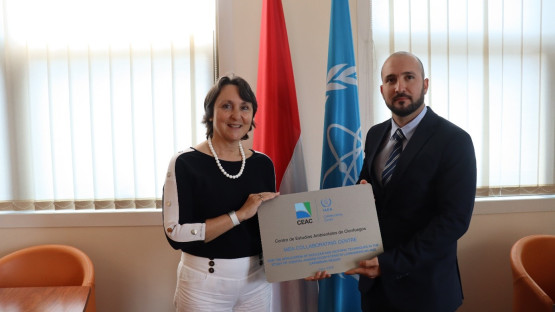The first IAEA Collaborating Centre for marine research in a small island developing state has been officially designated in Cuba. The Centro de Estudios Ambientales de Cienfuegos has been working with the IAEA for many years, applying nuclear and isotopic techniques to manage fragile Cuban marine environments more effectively. It will now strengthen this collaboration and apply these techniques to the study of marine-coastal ecosystems in the Latin American and Caribbean Region.
The Centro de Estudios Ambientales de Cienfuegos (CEAC) will serve as a hub for research, development and capacity building, focusing on marine and coastal pollution, harmful algae blooms, ocean acidification and carbon sequestration, among others. The five-year Collaborating Centre agreement will support IAEA’s efforts to enhance countries’ capacity to use nuclear tools and techniques for regional marine monitoring, strengthening seafood safety programmes and building resilience in coastal communities. Small island developing states (SIDS) are heavily dependent on the ocean for environmental and economic prosperity, making them particularly vulnerable to ocean changes. Monitoring the impacts of ocean changes is crucial to ensuring that communities have the information they need to identify potential threats and mitigate negative effects.
“The centre will support studies relevant to the identification of sources and effects of pollutants in the environment, using isotopic, nuclear and molecular techniques,” said Florence Descroix-Comanducci, Director of the IAEA Marine Environment Laboratories. “The progress we have already made in collaboration with CEAC is a testament to what science can achieve, and I look forward to the advances that will come as a result of this new agreement.” To commemorate CEAC’s designation as an IAEA Collaborating Centre, Descroix-Comanducci presented CEAC Director Alejandro Garcia Moya with a plaque in June 2024 at the IAEA Marine Environment Laboratories.






